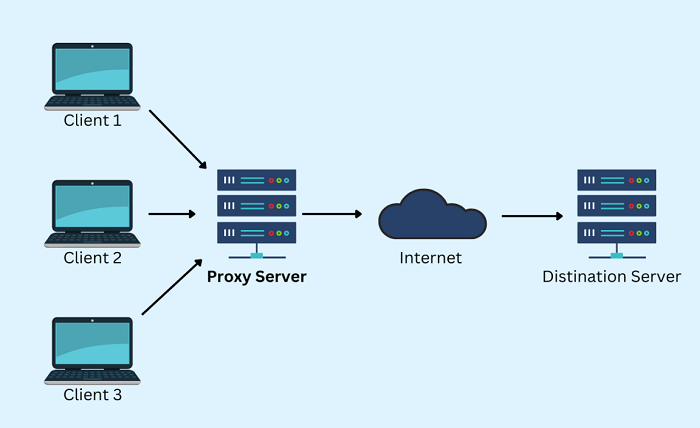In the realm of cybersecurity and digital privacy, setting up a proxy server is a fundamental step towards safeguarding your online activities. Whether you’re looking to protect your personal browsing habits or manage internet access within a business environment, understanding how to set up a proxy server can be immensely beneficial. This guide will take you through a detailed, step-by-step process using a popular proxy server software called Proxyium.
Why Use a Proxy Server?
Before delving into the setup process, let’s quickly review why proxy servers are essential:
- Enhanced Privacy: A proxy server acts as an intermediary between your device and the internet, masking your IP address and making it harder for websites to track your online behavior.
- Improved Security: By filtering web requests and responses, proxy servers can help block malicious content and prevent cyberattacks.
- Access Control: Proxy servers allow you to control and monitor internet usage within a network, ensuring compliance with company policies or access restrictions.
- Bypass Geo-Restrictions: They enable users to access content that may be restricted based on geographic location, enhancing internet freedom.
Setting Up a Proxy Server with Proxyium
Proxyium is a versatile and user-friendly proxy server software that simplifies the setup and management process. Follow these steps to set up your proxy server using Proxyium:
Step 1: Download and Install Proxyium
- Visit the Official Website: Go to the Proxyium official website and download the software compatible with your operating system.
- Install Proxyium: Run the downloaded installer and follow the on-screen instructions to complete the installation process.
Read more about: call bomber
Step 2: Configure Proxyium
- Launch Proxyium: Once installed, open the Proxyium application on your computer.
- Create a New Proxy Server: In the Proxyium interface, navigate to the option to create a new proxy server configuration.
- Choose Proxy Type: Select the type of proxy server you want to set up (e.g., HTTP, HTTPS, SOCKS).
- Enter Server Details: Provide the necessary details such as IP address, port number, and authentication credentials if required by your proxy server provider.
Step 3: Customize Proxy Settings
- Advanced Configuration: Proxyium offers advanced settings that allow you to configure encryption protocols, connection timeouts, and bandwidth limits according to your preferences.
- Access Control: Set up whitelists and blacklists to control which websites and applications can be accessed through your proxy server.
Read more about: facecheck id
Step 4: Test Your Proxy Server
- Start the Proxy Server: Activate your configured proxy server within the Proxyium application.
- Verify Connectivity: Use online tools or browser extensions to verify that your IP address has changed, indicating that your internet traffic is now routed through the proxy server.
- Check Performance: Conduct speed tests to ensure that the proxy server does not significantly impact your internet connection speed.
Step 5: Maintain and Monitor Your Proxy Server
- Regular Updates: Keep Proxyium updated with the latest software versions to benefit from security patches and performance improvements.
- Monitor Traffic: Utilize Proxyium’s monitoring features to keep track of web traffic passing through your proxy server and identify any potential issues or anomalies.
- Troubleshoot Issues: Refer to Proxyium’s user manual or online support resources if you encounter any difficulties during setup or operation.
Conclusion
Setting up a proxy server using Proxyium is a practical way to enhance your online security and privacy while maintaining control over internet usage. Whether you’re a casual user concerned about online privacy or an IT administrator managing network access, Proxyium provides the tools needed to create a reliable proxy server configuration. By following this step-by-step guide, you can effectively set up and manage a proxy server using Proxyium to protect your digital footprint and ensure secure internet browsing.
Read more about: dinotube













